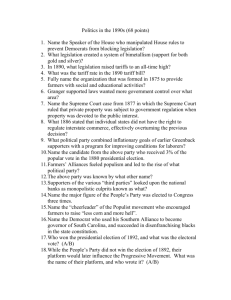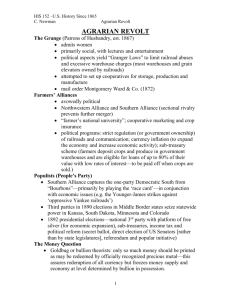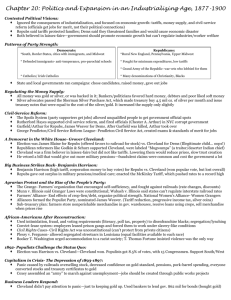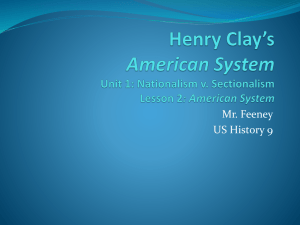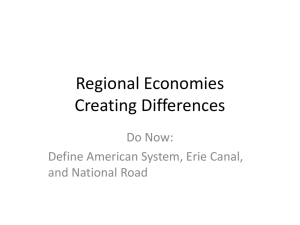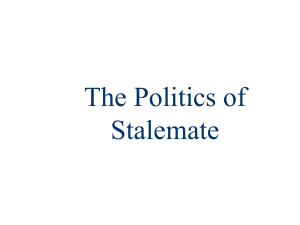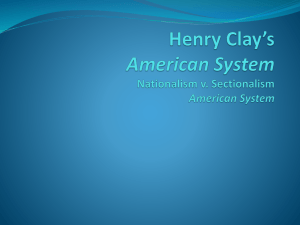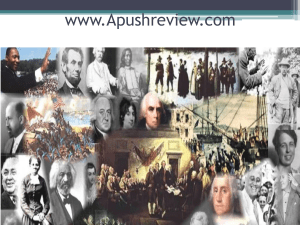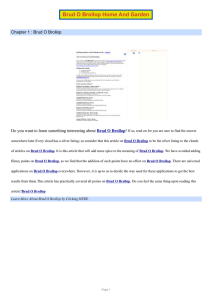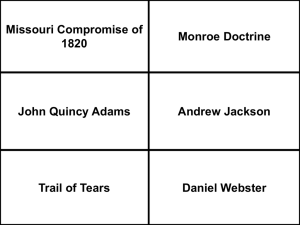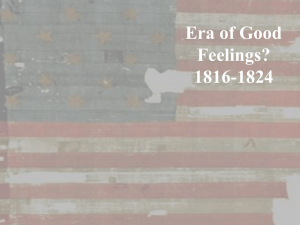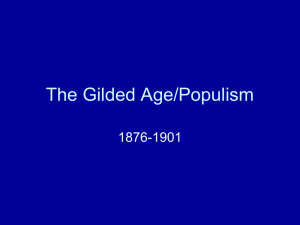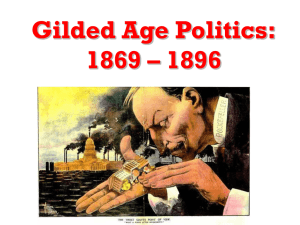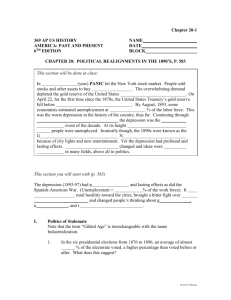PowerPoint
advertisement
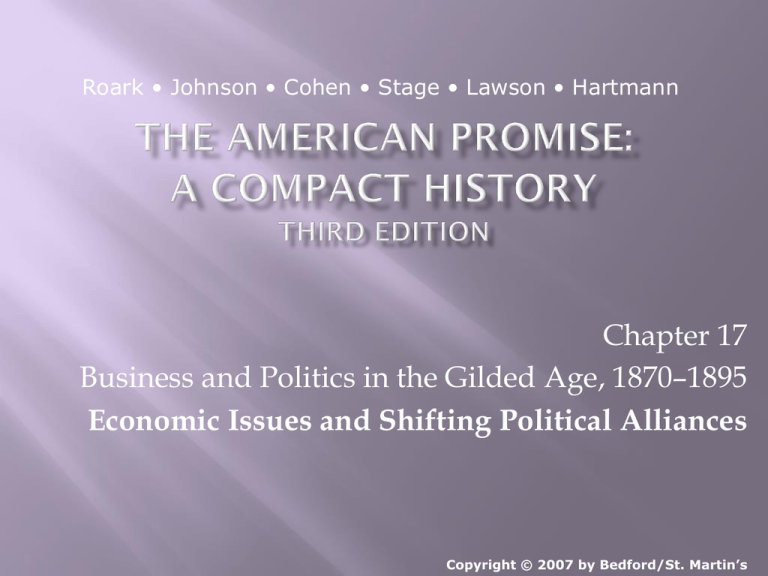
Roark • Johnson • Cohen • Stage • Lawson • Hartmann Chapter 17 Business and Politics in the Gilded Age, 1870–1895 Economic Issues and Shifting Political Alliances Copyright © 2007 by Bedford/St. Martin’s Section Learning Objectives • What economic issues defined the Gilded Age, and how did those issues lead to party realignment in the 1890s? • What controversies surrounded the tariff and the politics of protection? • What was the government's shifting policy on trust and railroad regulation? • What was the fight for free silver, and how did that fight lead to political realignment? Copyright © 2007 by Bedford/St. Martin’s Economic Issues and Shifting Political Alliances 1. 2. 3. 4. 5. 6. 7. The Tariff and the Politics of Protection The tariff became a potent political issue in the 1880s. The high tariff generated a huge surplus that sat in the U.S. Treasury's vaults, depriving the nation of money that might otherwise have been invested to create jobs and roads. Many Americans--including southern and Midwestern farmers, advocates of free trade, and political moderates-- agitated for tariff reform; other Americans, including industrialists and workers, opposed lowering the tariff. The Republican Party seized on the tariff issue to forge a new national coalition, encouraging an alliance of industrialists, labor, and western producers who benefited from the tariff in an effort to defeat the solidly Democratic South. The tactic worked, and Republican Benjamin Harrison was elected president in 1888. Back in power, the Republicans passed the highest tariff in the nation's history. The strategy backfired; angry voters swept Republicans out of Congress in the election of 1890, and in 1892, Harrison lost to Grover Cleveland, whose call for tariff revision had lost him the election in 1888. Economic Issues and Shifting Political Alliances Railroads, Trusts, and the Federal Government 1. Many Americans agreed on the need for federal regulation of the railroads and federal legislation against the trusts. 2. The Supreme Court proved hostile to state efforts to regulate the railroads, prompting Congress to pass the Interstate Commerce Act (1887), which created the nation's first federal regulatory agency, the Interstate Commerce Commission (ICC). 3. Concern over the growing power of the trusts led Congress to pass the Sherman Antitrust Act in 1890, which outlawed pools and trusts, ruling that businesses could no longer enter into agreements to restrict competition. 4. The Supreme Court gutted this act, severely restricting its scope. 5. But both the ICC and the Sherman Antitrust Act testified to a growing concern about corporate abuses of power and to a growing willingness to use federal measures to intervene on behalf of the public interest. Economic Issues and Shifting Political Alliances The Fight for Free Silver 1. Tariff reform and regulation of the trusts gained many backers, but the silver issue stirred passions like no other issue of the day. 2. On one side stood those who believed that gold constituted the only honest money; on the other side stood a coalition of western silver barons and poor farmers from the West and South who hoped that increasing the money supply with silver dollars, thus causing inflation, would give them some relief by enabling them to pay off their debts with cheaper dollars. 3. In 1873, Congress voted to stop buying and minting silver, passing a law that silver advocates called the "crime of '73." 4. In 1878 and again in 1890, Congress took steps to appease advocates of silver by passing legislation that required the government to buy silver and issue silver certificates. 5. Unfortunately for debtors, this legislation did little to promote the inflation that farmers desired. 6. The silver issue crossed party lines, but the Democrats hoped to use it to unite western and southern voters. Economic Issues and Shifting Political Alliances Panic and Depression 1. President Cleveland had scarcely begun his second term in office in 1893 when the nation fell into a deep economic depression. 2. In an effort to prevent the United States from falling into bankruptcy, J. P. Morgan suggested a plan whereby a group of bankers would purchase gold abroad and supply it to the Treasury. 3. The press claimed incorrectly that both the president and Morgan reaped tremendous financial benefits from this transaction. 4. Cleveland's action managed to salvage the gold standard but did not save the country from hardship. 5. The people's discontent touched off a Populist revolt and led to one of the most hotly contested elections in the nation's history in 1896.
